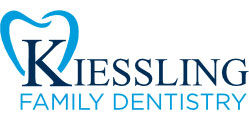Dental Emergency: What to Do When Teeth Are Injured or Broken
Dental emergencies can happen at any time, and knowing how to handle them can make a significant difference in preserving your oral health. Whether it’s a sports injury, a fall, or an accident, teeth can become injured or broken, leading to pain, bleeding, and the potential for long-term dental issues. Here’s a guide on what to do when faced with a dental emergency involving injured or broken teeth.
Immediate Steps to Take
 Stay Calm and Assess the Situation: The first step in any emergency is to stay calm. Take a moment to assess the situation and determine the extent of the injury. If the injury involves severe bleeding, a knocked-out tooth, or a broken jaw, seek immediate medical attention.
Stay Calm and Assess the Situation: The first step in any emergency is to stay calm. Take a moment to assess the situation and determine the extent of the injury. If the injury involves severe bleeding, a knocked-out tooth, or a broken jaw, seek immediate medical attention.- Control Bleeding: If there is bleeding, apply gentle pressure with a clean cloth or gauze to the affected area. This can help slow down the bleeding until you receive professional care.
- Rinse Your Mouth: Rinse your mouth gently with warm water to clean the area. Avoid using mouthwash or any strong antiseptic that could irritate the injured area.
- Save Any Pieces: If a tooth has been broken or chipped, try to save any pieces you find. Place them in a clean container with milk, saline solution, or saliva to keep them moist. This can help the dentist determine the best course of action for restoration.
- Handle Knocked-Out Teeth Carefully: If a tooth has been knocked out, handle it carefully by the crown (the part that is visible in the mouth) and avoid touching the root. Rinse it gently with water if it’s dirty, but do not scrub or remove any attached tissue fragments. Try to reinsert the tooth into its socket if possible, holding it in place with a clean cloth or gauze. If you cannot reinsert it, place it in milk or a tooth preservation product, and see a dentist immediately.
Seeking Professional Help
- Contact Your Dentist: As soon as possible, contact your dentist for an emergency appointment. Explain the situation and provide details about the injury to help them prepare for your visit. Most dental offices have protocols in place for emergencies and can often accommodate same-day visits.
- Pain Management: Over-the-counter pain relievers, such as ibuprofen or acetaminophen, can help manage pain while you wait for professional care. Avoid placing aspirin directly on the gums or affected area, as it can cause irritation.
- Follow-Up Care: After receiving emergency care, follow your dentist’s instructions for follow-up treatment. This may include additional appointments for restorative procedures, such as bonding, crowns, or root canals, depending on the severity of the injury.
Preventing Dental Emergencies
While accidents can happen unexpectedly, there are steps you can take to minimize the risk of dental injuries:
- Wear a Mouthguard: If you participate in contact sports or activities with a risk of falls or collisions, wear a properly fitted mouthguard to protect your teeth.
- Avoid Hard Foods: Be cautious when eating hard foods, such as popcorn kernels or hard candies, which can crack or chip teeth.
- Maintain Good Oral Hygiene: Strong, healthy teeth are less susceptible to injury. Brush and floss regularly, and visit your dentist for routine check-ups.
Handling a dental emergency involving injured or broken teeth requires quick thinking and prompt action. By following these steps and seeking professional dental care, you can effectively manage the situation and minimize the risk of further complications. Remember, maintaining a proactive approach to oral health and safety can help prevent many dental emergencies from occurring in the first place.



